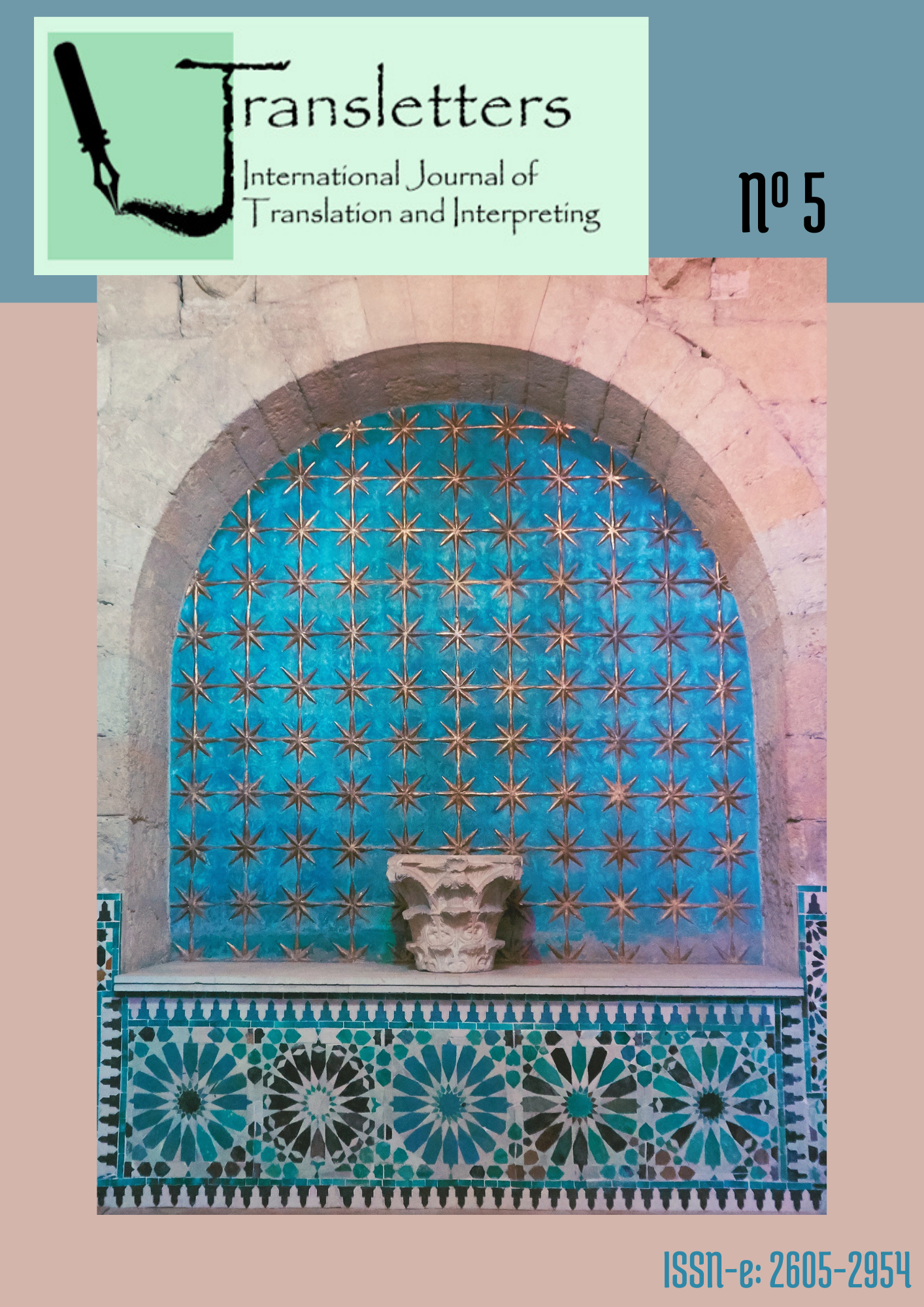Mock conferences in simultaneous interpreting training When students take the role of interpreters and speakers
Contenido principal del artículo
Resumen
This paper is about two mock conferences which were carried out with students undertaking the second elective Simultaneous Interpreting module in their 4th year in the Degree in Translation and Interpreting at the University of Málaga. The design of these mock conferences was prepared in such a way that students took the role of interpreters and speakers. The intention of the use of mock conferences is to get students closer to what they will come across when they start working as interpreters. After the students had taken part in these mock conferences, they then expressed their opinions about these exercises.
Descargas
Detalles del artículo
Política propuesta para las revistas que ofrecen acceso abierto
Los/as autores/as que publican en esta revista aceptan las siguientes condiciones:
1. Los/as autores/as conservan los derechos de autor y conceden a la revista el derecho de primera publicación con el trabajo licenciado simultáneamente bajo una Licencia de Atribución de Creative Commons, la cual permite a otras personas compartir el trabajo con un reconocimiento de la autoría del trabajo y la publicación inicial en esta revista.
2. Los/as autores/as pueden establecer acuerdos contractuales adicionales para la distribución no exclusiva de la versión publicada del trabajo en la revista (por ejemplo, enviarlo a un repositorio institucional), con un reconocimiento de su publicación inicial en esta revista.
3. Se permite y anima a los/as autores/as a publicar su trabajo previo a la versión final publicada en esta revista una vez aceptado (por ejemplo, en repositorios institucionales o en su sitio web), ya que puede dar lugar a intercambios productivos, así como a una citación más temprana y mayor del trabajo publicado (Véase El efecto del acceso abierto).

